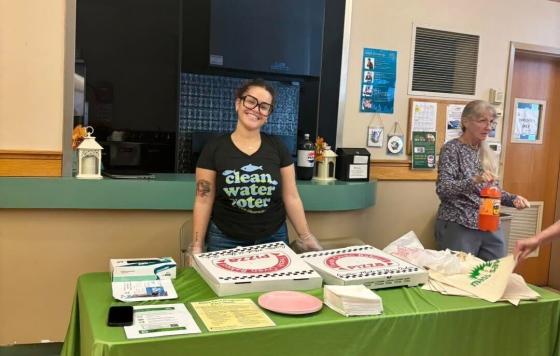The West End of Providence was a treasure trove of potential when I first walked through it, vacant lots occupied every street, curbs were wide and dilapidated and unused impervious surfaces were abundant: the ideal community for green infrastructure. My imagination ran wild; I would walk around and envision small rain gardens or massive pedestrian refuges in the streets. I was full of optimism; I had high hopes for the community and believed that we could make a real difference.
Working with Clean Water Action this summer has given me the opportunity to help our community realize the plethora of green infrastructure projects that occupied my mind when I first set foot in the community. Early on I already felt accomplished, we’d met with plenty of community members and gathered great mapping data. Yet as we began to speak about finding small grants and the difficulty of finding funding for even the smallest for projects the skeptic in me awoke. As someone who works with climate related issues every day, my mind is constantly filled with thoughts of deadly heat waves, loss of communities and the utterly world changing nature of climate change.
It’s a confronting topic, to say the least. Long walks through the neighborhood taking photos of small curbside puddles had me thinking: “this isn’t enough, is this all I am preventing?” Puddles, I find, are hard to take seriously, especially in contrast to the vision of devastating floods that exist in my head. Finding these puddles and imagining green infrastructure projects all of the sudden wasn’t enough for me, I felt as if they were insignificant next to the oncoming devastation of climate change, until I found a little quote: “Even if I knew that tomorrow the world would go to pieces, I would still plant my apple tree” – Martin Luther.
I first saw this quote and scoffed: why would you waste your time planting a tree that will do no good in the grand scheme of things? I then I realized I had been asking myself the exact same question all summer, so I searched for an answer. The nature of this type of work is that we attempt to tackle large problems with relatively small and local solutions. I believe it is human nature to at times find this overwhelming. However, as I walked around canvassing the West End I found that many residents actually did care about the small puddles and the lack of trees, and I saw a lot of happiness and hope as they reimagined their community. I then decided to answer my question with another one: does a good deed become less good because it might eventually be redundant? And no matter how small the puddles on the street are, no matter how small of an impact this work might make, in my heart of hearts the only answer I can come up with is: of course not.


